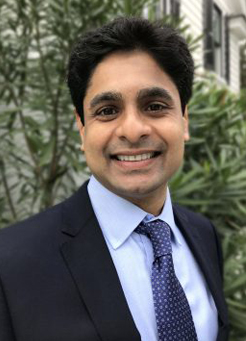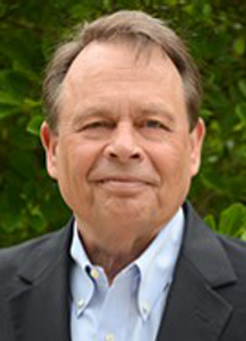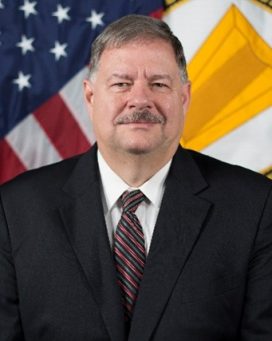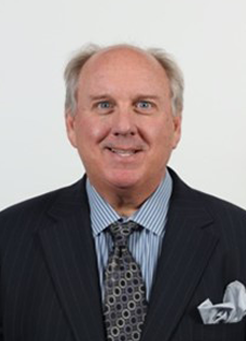Mission
MTEC Ventures provides investment preparation support services to MTEC small business members that have gap funding needs and are fundraising to advance their medical technology development for both military and civilian use. MTEC Ventures, LLC is a wholly owned subsidiary of the Medical Technology Enterprise Consortium (“MTEC”), a nonprofit corporation and 501(c)(3) exempt charitable organization.
Goals and Objectives
MTEC Ventures aims to achieve the following:
- Establish and grow a network of investors in emerging medical technology companies that serve MTEC’s military medical innovation and technology development mission supporting warfighter health and related civilian markets.
- Advance investment readiness of MTEC small business members participating in MTEC Ventures (portfolio companies) and connect them to investors.
- Facilitate access to capital for MTEC member medical technology development.
MTEC Ventures Council

Jill Sorensen's Bio
Roles & Responsibilities:
Provides leadership of MTEC Development work, including oversight of stakeholder relations, foundation relations, industry partners, commercialization, and ventures programs. Building out the MTEC investor network to garner additional dollars and support for MTEC members and medical technologies being developed to advance MTEC’s military medical mission and impact.
Bio:
Jill Sorensen is a senior innovation manager with over 30 years of experience in technology development and commercialization, technology startup investment, intellectual asset portfolio management, fundraising, research and development project management, and oversight of investments in companies developing medical products including biologics, drugs, and devices. She has worked with MRDC and other sponsors in the military medical enterprise, as well as multiple federal agencies including Health and Human Services (HHS) and the life sciences investment community. Jill has worked closely with the for-profit and non-profit sectors in grant and contract management, advancing strategic initiatives, building future interests and coalitions working toward common goals, conducting technology and investment assessments, research project oversight, business practice interfaces, and funding methodologies. Ms. Sorensen is a registered patent attorney in the U.S. and former director of SCRA’s SC Launch, technology commercialization at Johns Hopkins University and the University of Illinois at Chicago.

Gautam Ghatnekar's Bio
Bio:
Dr. Ghatnekar is the Chairman and Chief Executive Officer of Regranion, a clinical-stage biotechnology company developing a patented small molecule drug (RGRN-305) for the treatment of autoimmune skin diseases like psoriasis, hidradentitis suppurativa, atopic dermatitis, and bullous pemphigoid. Dr. Ghatnekar led strategic initiatives at Regranion to in-license the RGRN-305 asset and subsequently led business development efforts that resulted in out-licensing for the Greater China market. Dr. Ghatnekar is the co-founder of FirstString Research (now called Xequel Bio, Inc.), a biopharmaceutical company, and served as the President and CEO from 2009 to 2021. Prior to becoming President and CEO of FirstString, Dr. Ghatnekar served as the Company’s President and Chief Scientific Officer. Dr. Ghatnekar was a post-doctoral fellow at the Medical University of South Carolina in 2004, where he studied regenerative medicine and discovered the translational benefits of aCT peptides, which led to the formation of FirstString Research in 2005. During his tenure, Dr. Ghatnekar led the advancement of FirstString Research’s technology from a laboratory discovery to a well-capitalized biotechnology company valued at ~$120M. At FirstString, Dr. Ghatnekar led multiple rounds of institutional financing totaling $67M; secured >$30M in federal non-dilutive funding in the form of grants and contracts, in which he served as the principal investigator; and developed a robust technology pipeline in four different product lines covering dermatology; ophthalmology; organ preservation; and pulmonology.
Dr. Ghatnekar earned a Ph.D. in 2004 from North Carolina State University in Comparative Biomedical Sciences with an emphasis on cellular biology and developmental toxicology. He is the inventor on over 60 issued patents and author or co-author on numerous papers published in peer-reviewed journals. He serves on the board of directors of the South Carolina Student Loan Corporation and on the Ashley Hall Board of Trustees. He also serves on the Medical Technology Enterprise Consortium (MTEC) Ventures Council advising MTEC small business members seeking private investment.

Jonathan Miller's Bio
Bio:
Jonathan Miller has more than a decade of experience in managing diverse medical research and development programs and appropriations in the defense health sector, and over 12 years of direct government experience leading all aspects of planning, programming, budgeting, and execution processes. He serves as a principal on the firm’s federal government relations team and primarily assists clients in the defense and defense health space. Prior to joining Cornerstone, Jonathan served as chief of staff for the Defense Health Agency (DHA) Research and Development Directorate. In that capacity, he provided strategic direction and oversight of Defense Health Program (DHP) science and technology investments in the areas of combat casualty care, operational medicine, infectious diseases, medical simulation, health services, and clinical investigations. He also led multiple facets of DHA organizational transition activities, including the consolidation of military medical research and development across the Department of Defense. Before that, Jonathan served as the civilian deputy, Office of the Principal Assistant for Research and Technology at the U.S. Army Medical Research and Development Command (USAMRDC), Fort Detrick, MD. He also served as the director, DHP (Research, Development, Test, and Evaluation) responsible for ensuring that DHP medical research and development investments aligned with Military Health System policies and strategic goals and objectives. Jonathan received a B.S. in Nutrition from LaSalle University in 2002, M.S. in Biochemistry & Molecular Biology from Georgetown University in 2004, Ph.D. in Pharmacology from Temple University School of Medicine in 2009, and a J.D. from the University of Maryland, Francis King Carey School of Law in 2014. He is licensed to practice law in Maryland.

Ken Janoski's Bio
Bio:
Ken Janoski has over 30 years of professional experience with science, medicine and technology-based companies as a venture investor, advisor, entrepreneur, senior executive, and Board Member. His focus has been on the creation of high growth companies from advances in medical research, technology, and software, and has been a Founder, Co-Founder, or Founding Investor in more than 25 start-ups with technologies as diverse as new medicines, medical devices, imaging, research tools, nanotechnology, software, & cloud computing.
Over the recent past, early-stage companies Mr. Janoski has been involved with have received over $150MM in investment capital from private venture sources or SBIR/STTR Awards; grow cumulative valuation to over $360MM; and generate more than $60MM in successful Exits.
He is the former President & CEO of BioGenerator; the St. Louis-based philanthropic venture fund focused on the creation of new bioscience and advanced medical technology companies in the St. Louis region.
Mr. Janoski’s professional background also includes international management consulting experience with Andersen Consulting (now Accenture), where he advised global businesses on corporate development and growth strategies.
He holds a Master of Business Administration in Finance from Washington University in St. Louis.

George Ludwig's Bio
Bio:
Now retired from Federal service, George V. Ludwig served in the Army Senior Executive Service as the Principal Assistant for Research and Technology at the U.S. Army Medical Research and Development Command (USAMRDC), Army Futures Command, where he exercised scientific oversight and management of the Army and DoD medical Science and Technology programs ($2.1 billion in FY19). These included programs in Military Operational Medicine, Combat Casualty Care, Military Infectious Diseases, Clinical and Rehabilitative Medicine, Medical Simulation and Health Information Technology, Medical Chemical and Biological Defense, and Congressional Directed Special Interest Research Programs. He also had responsibility for oversight and program development of research conducted within the Command’s worldwide system of laboratories, six in the continental United States and three outside the continental United States.
Prior to his most recent position, Dr. Ludwig served as the Civilian Deputy Principal Assistant for Research and Technology for USAMRDC where he was responsible for implementing medical research policy, facilitating strategic partnerships, and coordinating medical research and development intellectual capital and physical infrastructure. He led USAMRMC efforts to establish a new overseas laboratory in Tbilisi, Georgia, He also facilitated and managed efforts to codify and organize USAMRMC scientific and technical competencies.
Dr. Ludwig also served as Acting Director of the Defense Laboratories Office while on temporary assignment to the Assistant Secretary of Defense for Research and Engineering. In that position, Dr. Ludwig served as the primary advocate for the Department’s in-house laboratory system to senior DoD and Service leadership, Congress, academia, and industry. He also had oversight responsibilities for the DoD technology transfer program. He served as the primary source of laboratory policy at the DoD level and developed new legislative initiatives on behalf of the defense laboratories.
Previously Dr. Ludwig served as Science Director at the United States Army Research Institute of Infectious Diseases where he helped USAMRIID meet the challenges of a changing national and international biodefense landscape. Dr. Ludwig also served as Chief of the Diagnostic Systems Division at USAMRIID where he coordinated a program for development of advanced diagnostics capable of identifying potential biological threats and other high-hazard infectious and non-infectious disease agents. Dr. Ludwig worked extensively on vaccine development while at USAMRIID, serving on the team responsible for development of new and innovative vaccine platforms including a recombinant vaccine for Venezuelan Equine Encephalitis, and an alphavirus vaccine replicon capable of stimulating immunity to nearly any disease-causing agent. He traveled extensively in support of humanitarian and capacity-building efforts for the military including as a team leader for disease outbreak investigations in the former Zaire (Ebola virus), Colombia (Venezuelan equine encephalitis virus), and the Southwest United States (Sin Nombre virus). Dr. Ludwig received his Ph.D. from the University of Wisconsin in 1990 and is author of nearly 70 manuscripts, technical reports, book chapters, and other publications written during 30 years of relevant experience. He owns five patents resulting from his work on vaccine delivery systems and has received numerous awards and honors including the Order of Military Medical Merit, Superior Civilian Service Medal and two Achievement Medals for Civilian Service.

Greg Sullivan's Bio
Bio:
Greg has 30 years of experience in commercializing, sourcing, and surveillance intellectual property. Greg has provided commercialization assistance to leading research universities, federal laboratories, and fortune 500 corporations. He was a former Practice Leader in Deloitte & Touche’s, Washington, DC Intellectual Asset Management Practice. As well as, a former Director of KPMG’s Consulting Technology Commercialization. He has also Co-founded a successful technology commercialization company.

